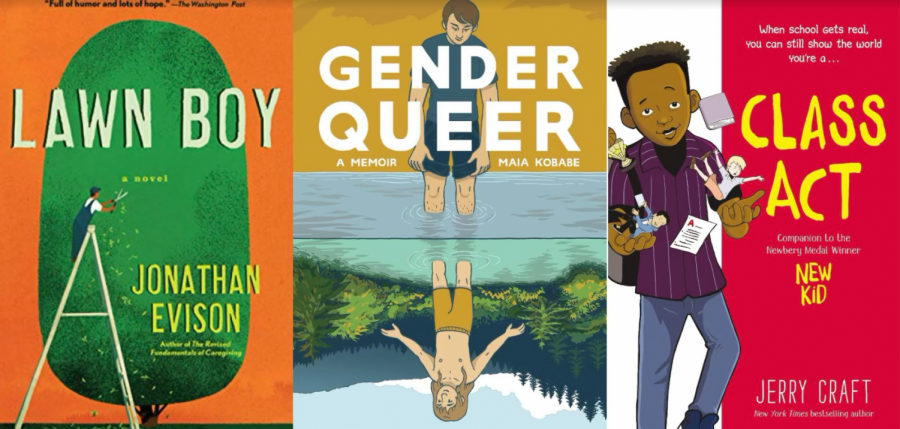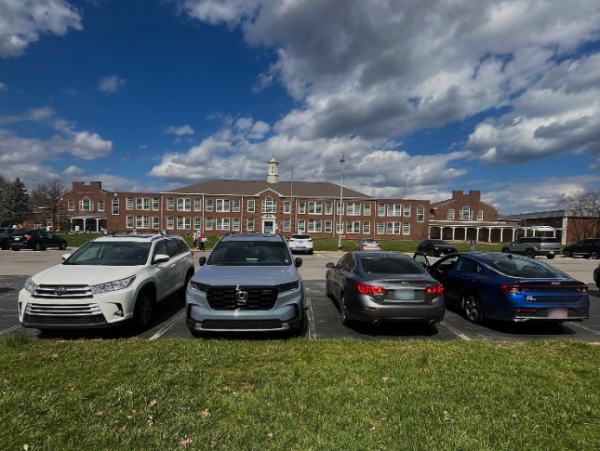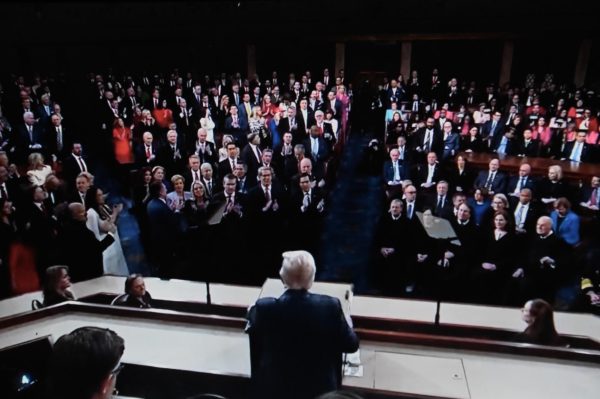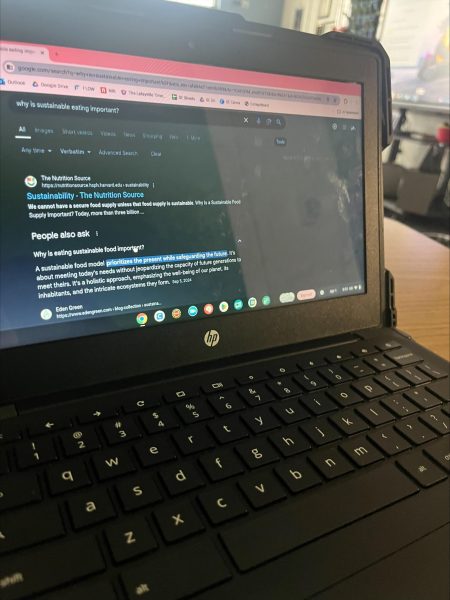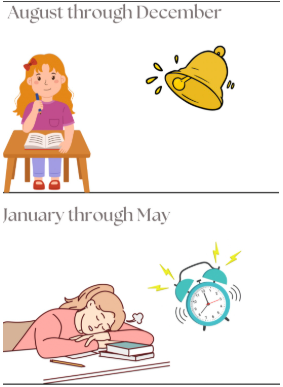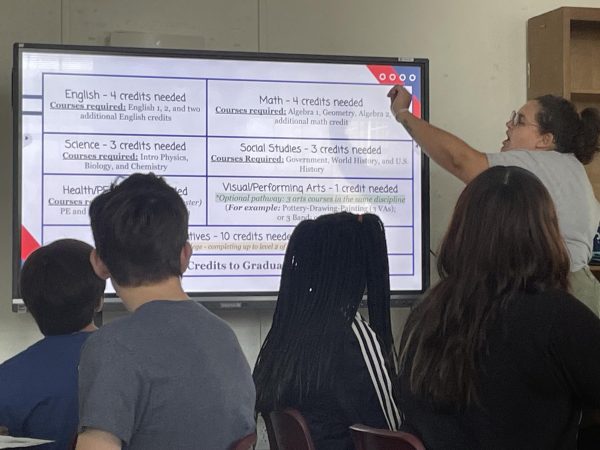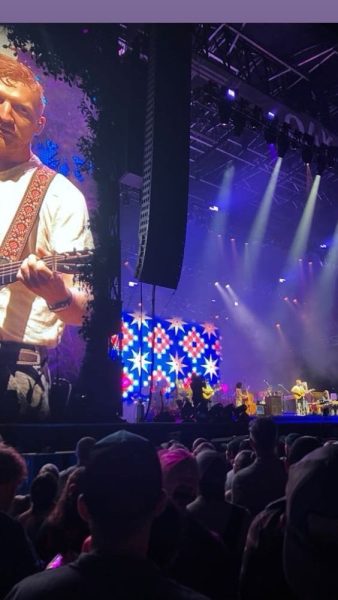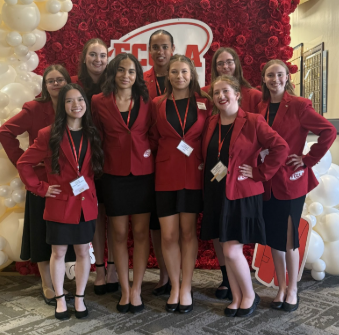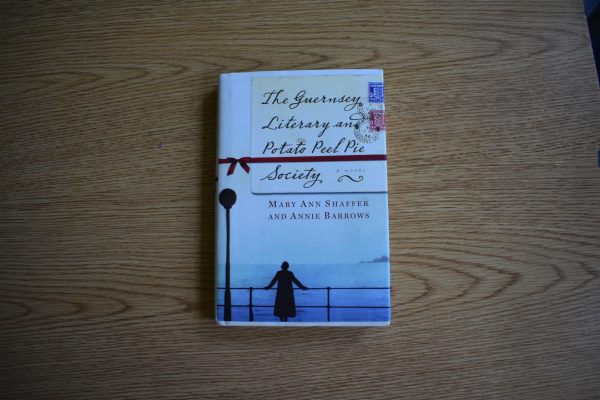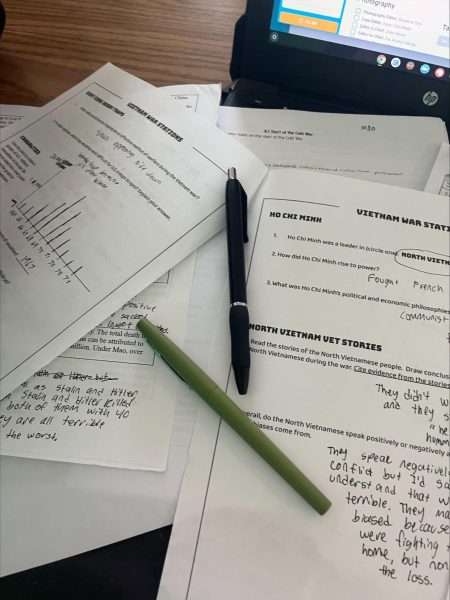Censorship in Schools: Why are we banning books about race and sexuality?
Lawn Boy by Jonathan Evison, Gender Queer by Maia Kobabe, and Class Act by Jerry Craft are all books that have been removed from school libraries for “promoting” critical race theory or mentioning queer experiences. Covers via Google Books
Is Ray Bradbury’s dystopian novel Fahrenheit 451 coming to life? With school boards and politicians proposing outlandish book bans all around the country, it wouldn’t be a surprise if the 1953 novel became a reality. Maybe instead of firefighters, we’ll have PTA moms and senators coming to our houses to burn our most treasured novels.
In mid-June, Texas state legislatures signed a bill limiting what teachers can discuss in terms of racism and current events in the classroom. This bill was aimed to ban critical race theory, which has been a hot topic this school year. As a result of this bill being signed, the conversation of race in the classroom has been seriously restricted, and now school library shelves are being targeted.
In one Texas school district, children’s author Jerry Craft had his work removed from library shelves and parents even started a petition to cancel his scheduled visit with third through fifth graders at one of the district’s elementary schools. This motion was all because his works such as Class Act and New Kid, which follow young black children navigating school in a low diversity environment, supposedly promote critical race theory; an idea that explains how racism is embedded in our government and how it impacts society.
On a more local level, Floyd County which isn’t even a hundred miles away from Lexington removed titles like, The Story of Ruby Bridges by Robert Coles, a story about the first African American student to integrate into a Southern school, because it used phrases such as, “angry white faces” and “injustice delivered by the white people.” Concerns were also raised about the book Separate Is Never Equal by Duncan Tonatiuth, which follows the story of fighting for desegregated education in California, nearly ten years before Brown vs. Board of Education.
These efforts to suffocate our student’s knowledge about racism are detrimental. Why are we denying students the right to learn about their history and how it applies to current events in an educational setting? We are living in such a diverse world and denying us the ability to understand it is cruel. Many of these books are catered to children and are meant to educate them about these topics, so it’s hard to understand how these books are bad in the first place.
In addition to schools censoring books on race or that “promote” critical race theory, they are also banning books that talk about the LGBTQ+ community. The book Gender Queer by Maia Kobabe is a memoir that follows the non-binary author’s journey of self discovery. According to the Los Angeles Times, the book has been challenged in Florida, Maine, Washington, New Jersey, Ohio, Rhode Island, Virginia, and Texas.
Eight states where this book has been challenged; Eight states where there are people who want a book pulled off of school library shelves because it tells the hard truth of navigating gender identity and sexuality.
Giving students the resources to explore other identities safely, along with the assurance that their feelings are universal and that many people have similar experiences is crucial. Censoring and taking away books that encourage them on a path to self-discovery teaches students that it’s not okay to be themselves. It is vital that young, underrepresented students see themselves represented in literature.
As a student, it’s difficult to understand why adults are trying to censor us from the world we live in. I have been lucky enough to attend a school and be in an environment where discussing these topics is encouraged, but I can only imagine what it would be like if current events and topics like race and sexuality.
If we weren’t allowed to discuss these topics and events in my classes, I doubt that many students, myself included, would even take the time to research and educate ourselves. Personally, it took discussing current events in my political science and AP United States History classes for me to even begin researching and educating myself on the world around me, let alone racism and sexuality.
However, the topics in these books may be graphic and inappropriate for younger audiences. Books like Lawn Boy by Johnathan Evinson have been targeted by parents for depicting two young boys doing sexual acts. It’s completely understandable for parents to be upset that their children are reading such graphic descriptions at a young age.
Maybe instead of ripping these books off of shelves, schools should place labels on them with content warnings. They could also make parents aware of the content of the books, and even provide permission slips so their students can’t check them out without permission.
Being blatantly homophobic and racist while denying students the ability to safely learn about identity and culture is not the way to educate students. Banning literature because of one parent’s, or a group of parents’ prejudice is ignorant. All identities should be accepted and taught about in the classroom, not just the ones that check the boxes of “straight” and “white.”
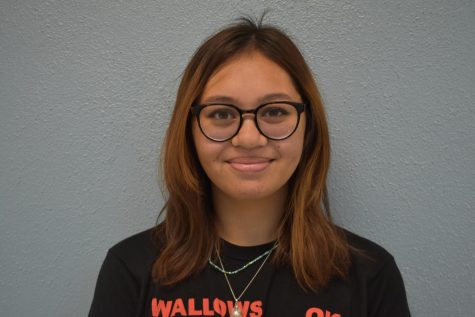
Emma Taylor is a senior at Lafayette. She has been on The Times all four years of high school, serving as co-Editor-in-Chief for three. This past summer,...

